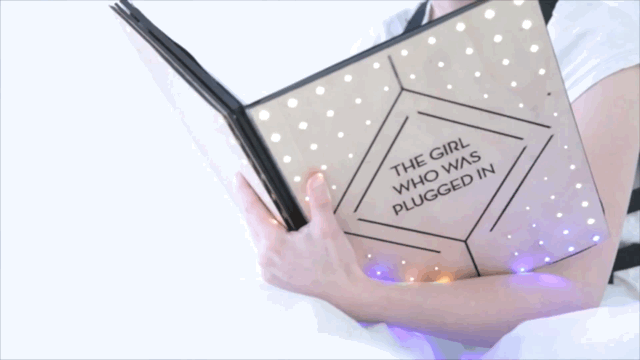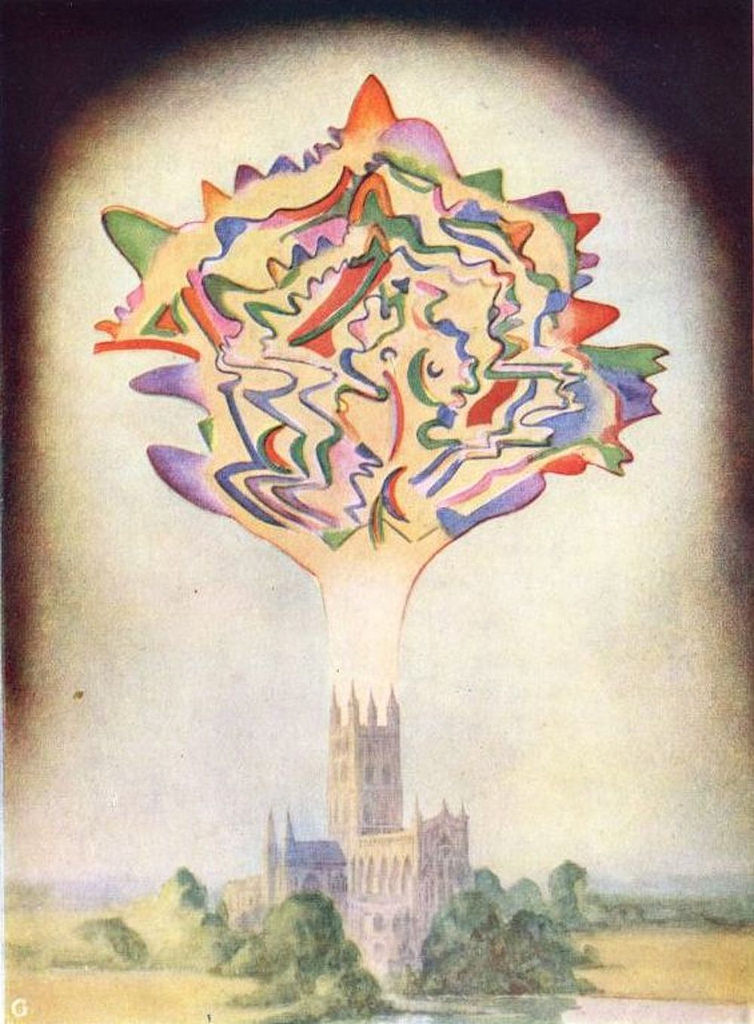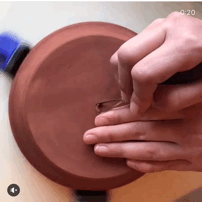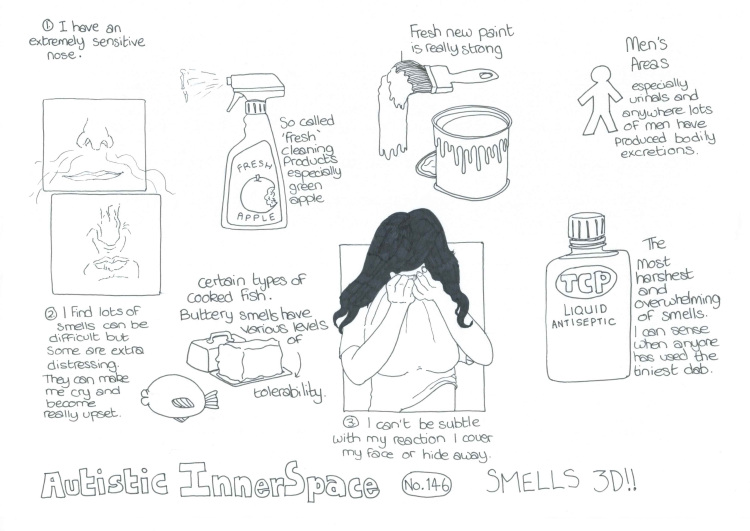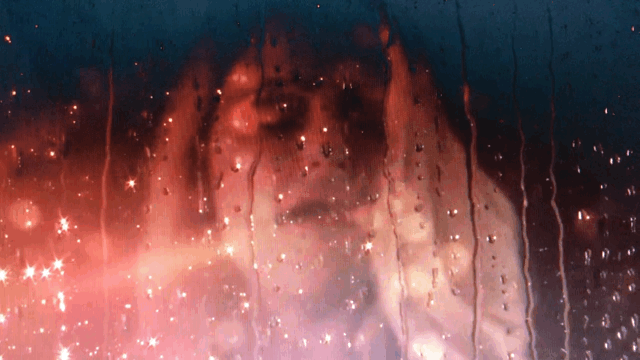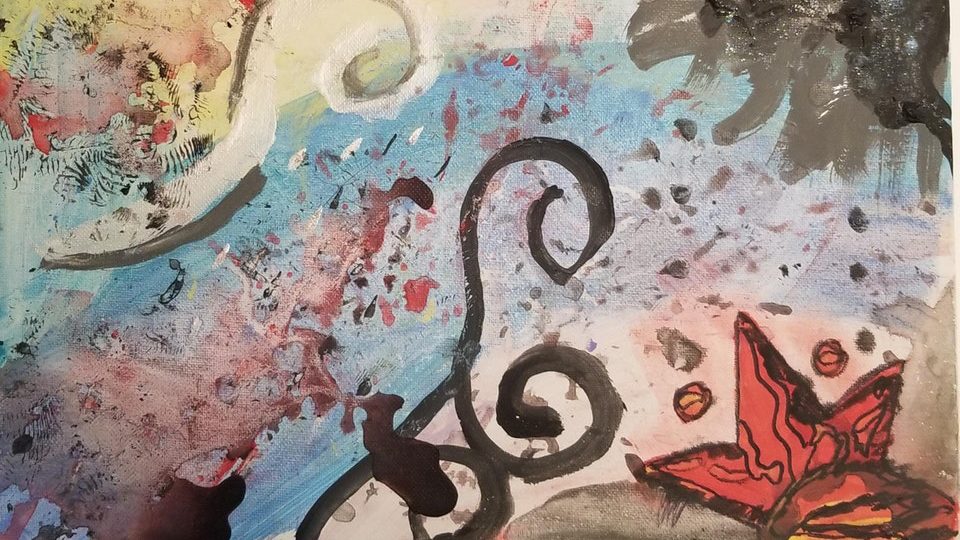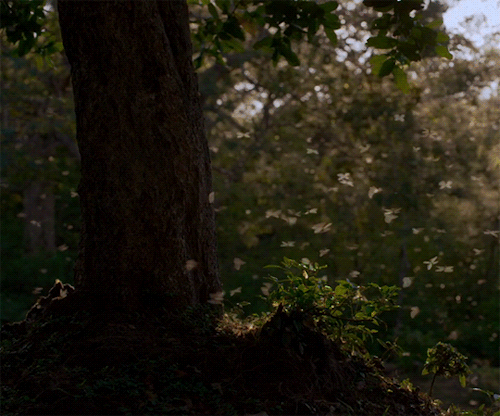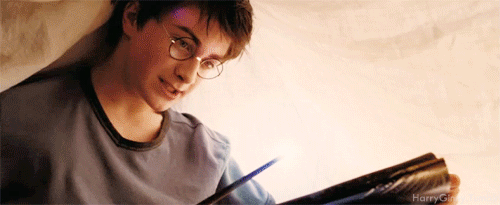“The Massachusetts Institute of Technology has taken the idea of sensory fiction several stages further and offers a Science Fiction to Science Fabrication course. Using a range of sensors and tools, part of the studies include building a wearable connected book contraption in the form of a strap-on vest. This allows the reader to get fully in contact with the character’s emotions and physical states for a genuinely immersive reading experience. Selected passages trigger vibrations to influence heart rate, and […]
How “THOUGHT-FORMS” (1901) bridged synesthesia and mysticism, calendar synaesthetes map time in space, and a light sculpture that plays like a trigger instrument
“Thought-Forms, a strange, beguiling, frequently pretentious, utterly original book first published in 1901, emerged from this ferment of late-Victorian mysticism. It was written by Annie Besant and Charles Leadbeater, erstwhile members of the London Theosophical Society alongside Yeats, and it features a stunning sequence of images that illustrate the book’s central argument: emotions, sounds, ideas and events manifest as visual auras.” — Benjamin Breen, Victorian Occultism and the Art of Synesthesia Contents Selected Reads Sensory Entrancement Sensory Resources Chuckles + […]
Author Kaite O’Reilly challenges normalcy with characters, the Steinhardt Museum of Natural History in Israel is a visually open design to gardens, and pottery wheel curlicues
“Instead of combusting, O’Reilly embarked on the D-monologues, which is made up of lots of conversations with disabled people. “I don’t take people’s stories, it feels too much like theft,” O’Reilly explains. “Instead I took people’s hopes, fears, thoughts, lived experiences, and used them to inform a fictional monologue. There are lots of different opinions: some people say ‘I’m not disabled, I don’t want to be called disabled’ because they may have a very different perspective from someone like me. […]
A synesthete explores London’s sounds, R & R is for routines and reinforcement, and an artist’s comics about Autistic Innerspace displays sensory triggers
“I can’t be subtle with my reaction. I cover my face or hide away.” — Helen, Autistic InnerSpace Comic No.146 Contents Selected Reads Sensory Entrancement Sensory Resources Chuckles + Daydreams Sources Discussion Comments
Music duo Polychrome multi-tracked vocals in ‘Synesthesia’, a literacy specialist shares her sensory-friendly reading log, and hypnotic laser engraving
“Unlike most reading logs, there are no requirements on the type of book to read. Readers don’t have to keep track of time or write down the book title. The only requirement? To read — anything! There is a list of interesting and fun reading opportunities, and kids check them off as they are completed. For instance, kids can read a comic book or a newspaper article, read in the bathtub or listen to an audiobook, read to a family […]
David Verdesi’s journey to discover sensory superhumans becomes a Coppola film, dyspraxia diagnoses stories, and perpetual sensory flight, fight, or freeze takes a toll
“It can result in leading oneself deeper in to a neurotic retreat and isolation in to those “oh-so-distracting pleasurable safe feelings” which one comes to cherish, finding solace in a perceived to be real yet still illusory sensation and feeling of “energy ” which is then equated with being spiritual or feeling good, without realizing that the momentary high leads nowhere concretely in term of actual mental and emotional growth, not to mention nowhere in term of genuine development. It […]
Dinosaurs apparently smelled flowers, nature sounds become a multi-million dollar industry, and a perspective shift in what students value in writers
“McKamey argues that the most important skill for a teacher is his or her ability to build trust with a student, which develops when students can sense that the educator is willing to hear their ideas, thoughts, and musings despite their challenges with grammar, low grades, or test scores in previous classes. This doesn’t mean that teachers need to cushion their feedback with fake praise, but it does mean, she thinks, that schools should help teachers develop skills to recognize […]
Presumptions of deficit can be damaging, embracing rather than masking autism can open the door for happiness, and piercing ASMR supercuts found in Harry Potter #takethemaskoff
“I have seen some autistic people argue that blaming society for our difficulties is shirking personal responsibility and that we should be aiming to ‘improve’ ourselves. This stance says a lot about their conceptualisation of autism: If one sees autistic people as deficient or lacking in some way compared to non-autistic people then it is understandable that one would believe that acting more like a non-autistic person is “self-improvement.” I do not see autism that way at all. All humans […]

